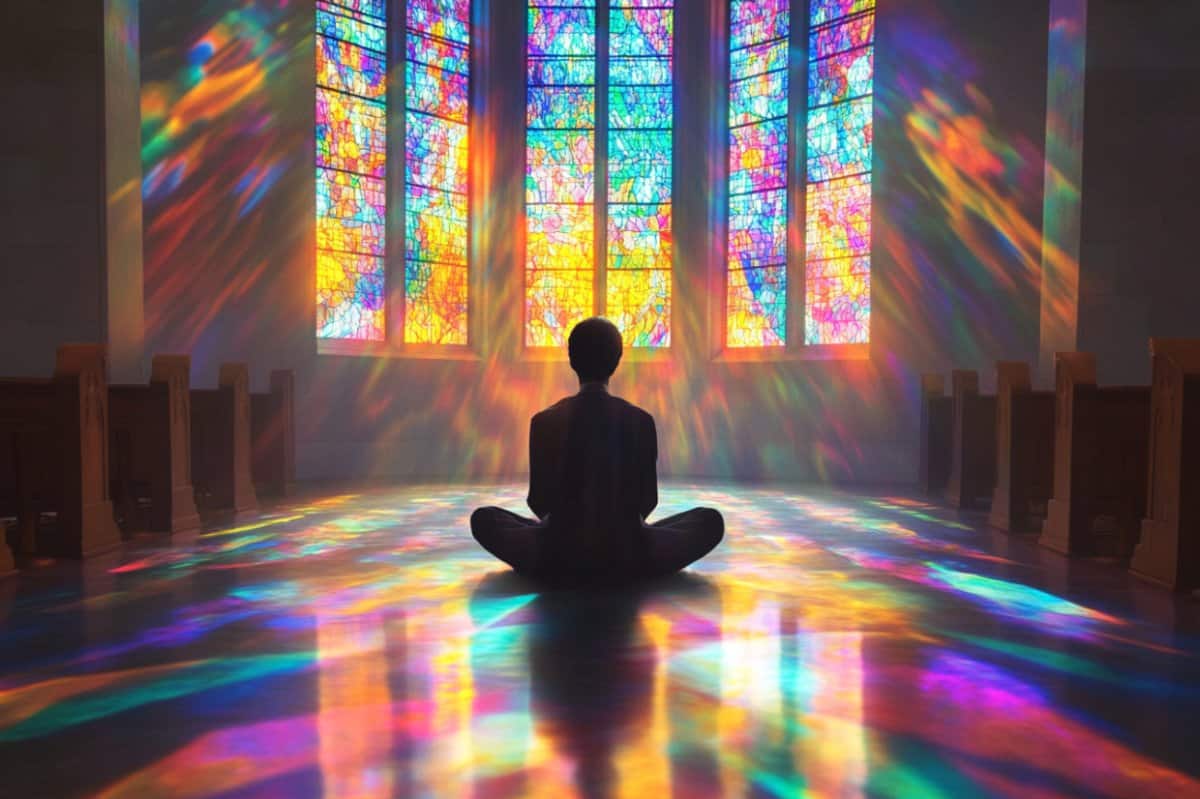Summary: Psilocybin significantly enhances psychological well-being and spiritual insight among clergy members across major world religions. Participants reported lasting positive changes in religious practice, personal beliefs, and vocational effectiveness after two guided psilocybin sessions.
Most described the experiences as among the most spiritually significant and psychologically meaningful of their lives. These effects were sustained for over a year, highlighting psilocybin’s potential as a tool for spiritual development and mental health support.
Key Facts:
- Long-Term Impact: Positive changes were sustained up to 16 months after the second session.
- Spiritual Significance: 96% of participants ranked at least one experience among the top 5 most spiritually significant of their lives.
- Vocational Benefits: Clergy reported improved effectiveness as religious leaders following psilocybin use.
Source: Mary Ann Liebert, Inc
A new study in the peer-reviewed journal Psychedelic Medicine showed that psilocybin administration in a sample of clergy from major world religions increased multiple domains of overall psychological well-being, including positive changes in religious attitudes and behavior as well as effectiveness in their vocation as a religious leader.
The late Roland Griffiths, of Johns Hopkins University, along with Stephen Ross and Anthony Bossis, from New York University Grossman School of Medicine, and coauthors, compared a control group of participants to psychedelic-naïve clergy from various major world religions who received two psilocybin sessions: 20 and then 20 or 30 mg/70 kg about 1 month later.

Compared to the control group, “participants who had received psilocybin reported significantly greater positive changes in their religious practices, attitudes about their religions, and effectiveness as a religious leader, as well as in their non-religious attitudes, moods, and behavior,” reported the investigators.
“Follow-up assessments showed that positive changes in religious and non-religious attitudes and behavior were sustained through 16 months after the second psilocybin session.”
Participants rated at least one of their psilocybin experiences to be among the top 5 most spiritually significant (96%), profoundly sacred (92%), psychologically insightful (83%), and psychologically meaningful (79%) of their lives.
About this psychedelics and neurotheology research news
Author: Kathryn Ruehle
Source: Mary Ann Liebert, Inc
Contact: Kathryn Ruehle – Mary Ann Liebert, Inc
Image: The image is credited to Neuroscience News
Original Research: Open access.
“Effects of Psilocybin on Religious and Spiritual Attitudes and Behaviors in Clergy from Various Major World Religions” by Roland Griffiths et al. Psychedelic Medicine
Abstract
Effects of Psilocybin on Religious and Spiritual Attitudes and Behaviors in Clergy from Various Major World Religions
Background: Although historical writings, anthropological accounts, and experimental studies document associations between psilocybin use and religion, no prospective experimental study has investigated how the effects of psilocybin are experienced and interpreted by religious clergy.
This exploratory study evaluated the overall safety and the acute and enduring effects of psilocybin in clergy.
Methods: Participants were psychedelic-naïve clergy from various major world religions. A randomized, parallel group, waitlist control design was used to assess the effects of two supported psilocybin sessions, with participants receiving 20 and then 20 or 30 mg/70 kg about 1 month later.
Outcomes were compared between the Immediate Group (n = 13) and the Delayed Group (n = 16) at 6 months after screening using self-report measures. The effects of psilocybin were also assessed on session days and 4 and 16 months after the second psilocybin session in the 24 participants who completed both sessions.
Results: The primary outcome assessment at 6 months after screening showed that, compared with the delayed control group, participants who had received psilocybin reported significantly greater positive changes in their religious practices, attitudes about their religion, and effectiveness as a religious leader, as well as in their non-religious attitudes, moods, and behavior.
Follow-up assessments showed that positive changes in religious and non-religious attitudes and behavior were sustained through 16 months after the second psilocybin session.
At that time, participants rated at least one of their psilocybin experiences to be among the top five most spiritually significant (96%), profoundly sacred (92%), psychologically insightful (83%), and psychologically meaningful (79%) of their lives. Furthermore, 42% rated one of their experiences to be the single most profound of their lifetime.
At 16-months follow-up, most (79%) strongly endorsed that the experiences had positive effects on their religious practices (e.g., prayer or meditation) and their daily sense of the sacred, and most (71%) reported positive changes in their appreciation of religious traditions other than their own. Although no serious adverse events were reported, 46% rated a psilocybin experience as among the top five most psychologically challenging of their lives.
Conclusions: In this population of clergy, psilocybin administration was safe and increased multiple domains of overall psychological well-being including positive changes in religious attitudes and behavior as well as their vocation as a religious leader.
The study was limited by a waitlist control design, homogenous sample, and the use of some unvalidated outcome measures. Further research with more rigorous control conditions and diverse samples is needed.







